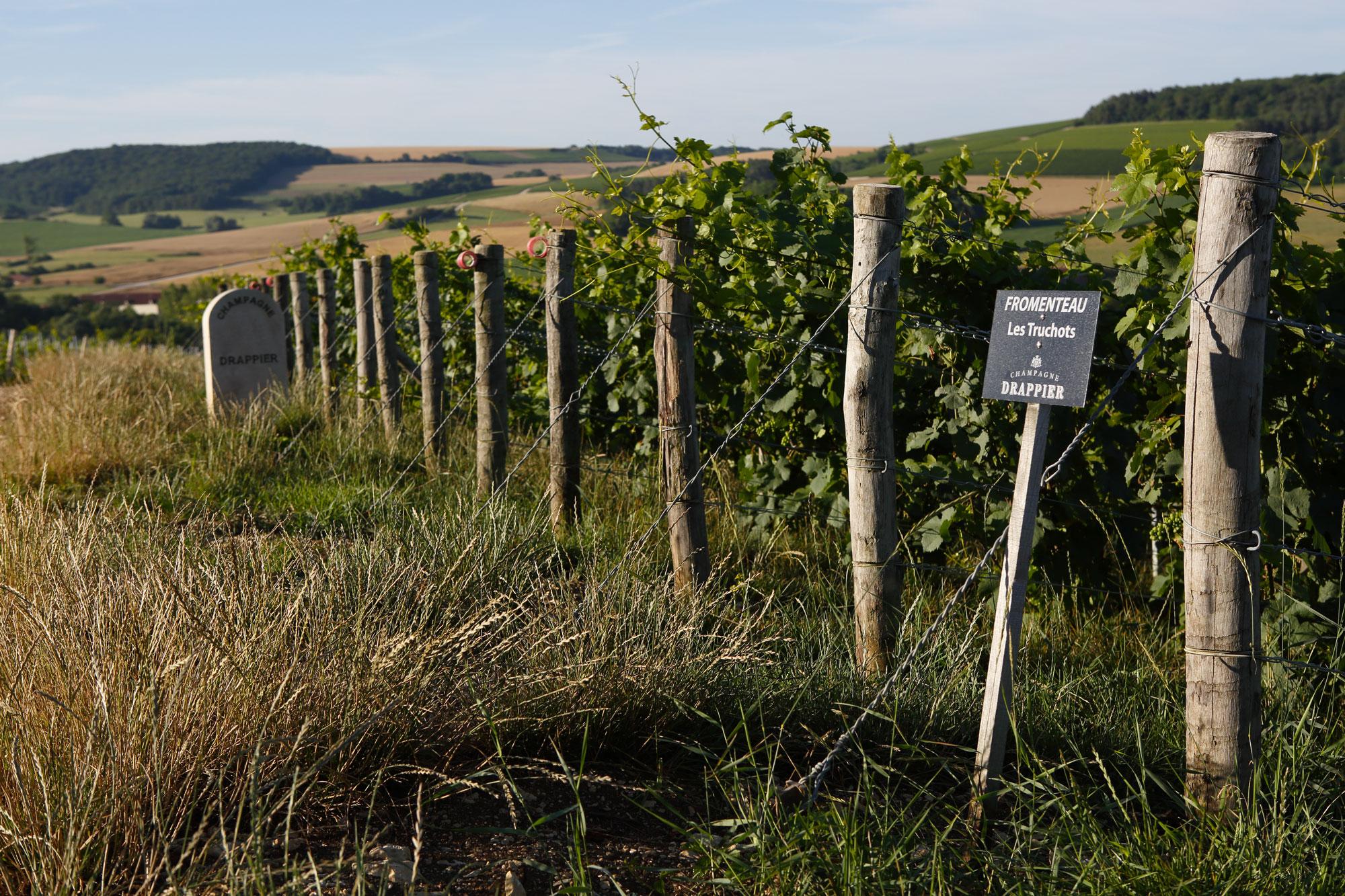House Drappier has unveiled Trop M’en Faut Champagne. Made from 100% Fromenteau, the new sparkling wine was created using certified organic farming methods.
Part of a new generation of all-natural fizz, the Drappier Trop M’en Faut Champagne is thought to be the richest expression of the region’s terroir, having been made with 100 percent Fromenteau, the ancestor to Pinot Gris. The native grape to Champagne is known to be rich and features rose hue when matured.
Despite making up 50 percent of vineyard plantings in Champagne 300 years ago, the grape is almost non existent in the region today. In the last three centuries, local producers noted the quality of wines coming from Burgundy, and replaced Fromenteau with Pinot Noir and Chardonnay. Today, the grapes makes up just 0.3% of the Champagne AOC, along with Petit Meslier, Arbane and Blanc Vrai.
To created their natural Trop M’en Faut, Drappier used the purest Champagne tradition, employing farming methods unchanged since the 12th century. Bringing together the harvests of 2017 and 2018, the grapes hail from the wine estate’s “les Truchots” plot, where only Drappier wine is grown, and all the work carried out during the certified organic process is done by hand, with next to no intervention. A specially selected native yeast ferments at a low temperature, and demi-muids, made exclusively from mature oak from the Orient Forest, are used. Wines are aged in the bottle for 24 months, and sugar is never added. There is no filtration, nor clarification – malolactic fermentation takes place naturally.
The only thing that prevents the process from being entirely natural are minute traces of sulphites.
For more information, head over to Drappier’s official website.
In June, Rémy Cointreau unveiled its first-ever Champagne house, Telmont, and the house’s goals for a more sustainable future under the concept of “In Nomine Terrae” (In the Name of Mother Nature). Over the next decade, the house will become 100% organic and implement a variety of green initiatives, including eliminating outer packaging and gift boxes, transitioning to 100% renewable electricity, limiting greenhouse gas emissions indirectly related to its business, and more.


